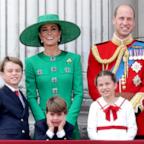Judge OKs DNC sanctions over Fla. primary
— -- A federal judge refused Wednesday to make the Democratic National Committee seat Florida's 210-member delegation to next summer's nominating convention.
Chief U.S. District Judge Robert Hinkle rejected a suit brought by U.S. Sen. Bill Nelson and Rep. Alcee Hastings, along with other Florida congressional Democrats.
They argued that the DNC violated the federal voting rights of about 4 million party members by punishing the state for moving its presidential primary to Jan. 29.
The ruling lets stand the national party's sanctions against the state that strips Florida of its entire delegation to the Democratic presidential nominating convention next year. Hinkle said to rule otherwise would invite a 50 state "free-for-all" of earlier primary dates.
"The judge has ruled, so the party bosses have had their say, they have prevailed," Nelson said from Washington following the ruling. He said the decision would not be appealed.
By refusing to award any delegates to candidates who defy a "four-state pledge" not to campaign in Florida, the DNC has also effectively imposed a boycott on the state. Except for former U.S. Sen. Mike Gravel of Alaska, all Democratic candidates have refused to campaign publicly in Florida although they continue raising money at private receptions.
Hinkle ruled that the national party has a First Amendment "associational right" to set a primary schedule and enforce its rules. He noted that the national party let Iowa and New Hampshire go first and second, by tradition, and took 11 applications for the two other January slots. Florida didn't apply to do so.
Attorney Kendall Coffey, a veteran of the 2000 post-presidential race litigation, unsuccessfully asked Hinkle to make the DNC recognize the Florida delegation because the Jan. 29 primary date was set by the state Legislature. He said the DNC's alternative — picking delegates in congressional district caucuses after the primary — was unsuitable. Absentee and overseas votes couldn't participate, Coffey said, and there would be only about 150 caucuses, compared to about 6,000 polling places in the primary.




